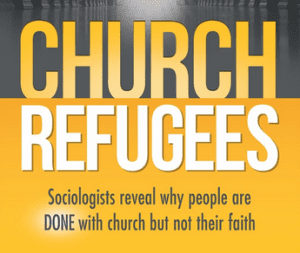Think about how many — perhaps most [?I don’t know the statistics on this one.] — churches structure Sunday morning, which is a time-intensive event for most churches. 1 hour, maybe 1.5 hours. The Sunday morning service. There are two parts to most Sunday morning services: the “worship” part, which means singing; and the “sermon” part, which means one person preaching. Sermons tend to be 30-45 minutes.
There is no place in the Bible one can go that teaches us how to orchestrate a Sunday morning service — there are some terms like singing and praying and teaching and sharing a meal and eucharist. There is no allocation of time or proportion to these.
Now for something else to mix into this pot of Sunday morning stew: pastoring for many churches is reduced to preaching so that “pastor” means our “preacher” on Sunday mornings. In some churches, the so-called pastor spends all week on his sermon or sermons and does little else. Such persons, of course, are not pastors; they are Sunday morning service preachers.
One more observation: we have created a Sunday morning service culture. What I’ve described is more or less the Sunday morning culture for most of us. This is what happens, and we often assume that this is what has always been (which it is not, but that’s for another person to write).
Inserting something new into this Sunday morning service culture and most of us are uncomfortable. Like asking people to gather into groups of three or four to pray; or into groups for some brief response to something just said in the sermon. Inserting such interactive times into the Sunday morning service changes the culture and irritates our comfort zones because the culture is what we have learned to expect.
20 minutes of singing with 40 minutes of butt-sitting quietness are not what everyone wants. It is not even necessarily what the church needs. But it is our culture.
 We can now go in two directions: we could ask churches to spend some time studying what the Bible teaches about what is to occur in a church fellowship and to see if the church is accomplishing those things; or we could go to Josh Packard and Ashleigh Hope’s Church Refugees and enter into why the Sunday morning service culture creates some Dones. We’ll do the second.
We can now go in two directions: we could ask churches to spend some time studying what the Bible teaches about what is to occur in a church fellowship and to see if the church is accomplishing those things; or we could go to Josh Packard and Ashleigh Hope’s Church Refugees and enter into why the Sunday morning service culture creates some Dones. We’ll do the second.
Not everyone likes a 40 minute lecture/sermon/address/exhortation. Those who do come to church; those who don’t are either not attending (some did and are now The Dones) or are irritated weekly by what happens. I’ve known people who volunteer to do others occurring simultaneously just because they are bored or So Over 40 minute sermons.
Some are into church because of relationships and conversations and fellowship.
Some just don’t get anything from doctrines and theology and theological debates.
Some know educationally that listening to a sermon can be both an educative experience but rarely is it the only (or even the best) form of education. After all, many preachers do see their sermons to be pedagogical or educative.
Some know that there are very few people who can both hold an audience well for 40 minutes and do this weekly.
Some think the structure of the Sunday morning service creates a hiearchical and even priestly culture where it’s a top down or mediatorial mode of learning.
Some know — and they are right — that education requires both information (through various means and media) and process through questions and conversations and interaction.
Some know that questions and a lack of certainty are part of the educational process and that sermons tend not to foster questions or even uncertainty but answers and certaintist approaches.
Some want space for disagreement to be part of the culture and that it can’t all happen during the Sunday morning service.
Some are The Dones because they are some of the somes above.
What are Packard and Hope’s recommendations to accommodate to The Dones (the Somes above)?
• Use church resources to bring speakers in to facilitate discussion.
• Have a talk-back session at the end of every service in which whoever delivered the sermon is available to answer questions and talk about the day’s message.
• There’s no need to actively court controversy, but give congregants: rather than your leadership team, the power to select speakers, and trust God to be at work in the process.
• Find the people in your church who would most desire conversation, and support them in organizing a participatory worship service once a month with more dialogue than sermon.
• Facilitate meals in people’s homes by using church funds to hire babysitters or provide food. (97)
My question: What about the Bible’s teachings? What about the Creed? What about our Faith? And, What are the best ways to teach and affirm the faith in our modern church contexts so that Sunday morning service culture expands to the realities of life in our world today?











